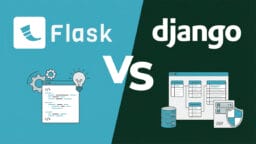Whether you run a small e-commerce store (which, let’s be frank, is just an extension of your brick-and-mortar store) or you are planning to turn your so-so blog into a thriving online magazine, you will need to create, modify and delete web pages. You will also have to find a way to propitiate the search engine gods.
As long as you had a small website with a few static pages, there was no question of getting a content management system – there was hardly much content to be managed. But, now you have grown a little bigger for your old boots, you are thinking of redesigning your website and wondering if you need a CMS for managing your website. Will installing and setting up a content management system (perhaps also customizing it) simply be a waste of time, will it be a canny investment?
Before we dive into the reasons for getting one (or not getting one), let’s first take a look at what a CMS is, and what it does.
What, in simple words, is a CMS?
A CMS – content management system – helps you manage the content of your website. The task of creating content is tough enough, but displaying it on your website is also challenging; especially, when the volume of content increases. Using a CMS, individuals without any knowledge of HTML can create and upload content to the website. WordPress is the most popular CMS, and it is open source.
Joomla, Blogger, Magento and Drupal are some other popular CMS solutions. On the other end of the spectrum are Sitecore CMS and Sitefinity CMS – used by less than 1% of businesses, but a natural choice for certain giant enterprise portals built using Microsoft technologies.
So, do I need a CMS?
In short: if you upload or modify web pages regularly, it is good to have a CMS (unless you are a designer proficient in HTML and don’t need to make too many changes). Do you relate to any of the below-listed points? If you do, you definitely need a CMS.
1. High Search Rankings are just a Dream
 Let’s say you are an ecommerce website, operating in a niche category. There are just half a dozen competitors online, and you feel that you can displace them on certain keywords. In order to rank high, you will need to use the right keywords in the meta title, meta description, and the URLs.
Let’s say you are an ecommerce website, operating in a niche category. There are just half a dozen competitors online, and you feel that you can displace them on certain keywords. In order to rank high, you will need to use the right keywords in the meta title, meta description, and the URLs.
Modifying all this information without a CMS is extremely time consuming, and you haven’t been able to do a good job. With a CMS, you simply need to enter the data in a box, and your work is done. So, if you are relying on digital marketing to get customers, a CMS is a must. In addition, certain content management systems come equipped with special digital marketing features.
2. You are not in Control
 You have a scoop in your hands, and you want to get it on your blog instantly. Unfortunately, you depend on the designer to upload the web pages – you have no clue how to get in online. Finally, you post it with his help, but by that time many other have done so too, and you just get a fraction of traffic. This is an imagined scenario that will never happen to professional bloggers or online magazine – they all have a CMS, and they can upload pages on their own, easily and instantly. If you like to be in control of your website, you need a CMS.
You have a scoop in your hands, and you want to get it on your blog instantly. Unfortunately, you depend on the designer to upload the web pages – you have no clue how to get in online. Finally, you post it with his help, but by that time many other have done so too, and you just get a fraction of traffic. This is an imagined scenario that will never happen to professional bloggers or online magazine – they all have a CMS, and they can upload pages on their own, easily and instantly. If you like to be in control of your website, you need a CMS.
3. Minor Changes take Eons
 It’s Christmas, and you want to get rid of all those Santa-stationery from last year. So, you want to offer 50% discount for the week and sell it all fast. The best way to do this, you think, is to have a huge banner on your home page, announcing the offer. But the designer is AWOL, and you have no idea how to do it yourself. With a good CMS, you could have done a decent job yourself, within an hour. You can make minor changes and modifications on your own, any time.
It’s Christmas, and you want to get rid of all those Santa-stationery from last year. So, you want to offer 50% discount for the week and sell it all fast. The best way to do this, you think, is to have a huge banner on your home page, announcing the offer. But the designer is AWOL, and you have no idea how to do it yourself. With a good CMS, you could have done a decent job yourself, within an hour. You can make minor changes and modifications on your own, any time.
4. Your Marketing is Facing Roadblocks
 Most online magazines, news sites or stores get a customized CMS when they grow bigger, when they need to take their web presence to the next level. When you start out, all you are doing is creating the same kind of pages; at times, you may attach the same kind of form to some of the pages. But when your digital marketing get complex, you create a sales funnel, and every pages plays its role in the sales funnel. Every page, according to its type, needs specific elements, and you may want to try out different methods of onsite marketing. This means A/B testing and frequent changes in the website. Doing all this without CMS is a criminal waste of time, money and effort.
Most online magazines, news sites or stores get a customized CMS when they grow bigger, when they need to take their web presence to the next level. When you start out, all you are doing is creating the same kind of pages; at times, you may attach the same kind of form to some of the pages. But when your digital marketing get complex, you create a sales funnel, and every pages plays its role in the sales funnel. Every page, according to its type, needs specific elements, and you may want to try out different methods of onsite marketing. This means A/B testing and frequent changes in the website. Doing all this without CMS is a criminal waste of time, money and effort.
5. Maintaining the Site is Getting Costlier
 There are tasks that require creativity, and then there are tasks that require repetition. Machines and software can take care of most repetitive tasks. If you don’t have a CMS, you are wasting the time and talent of your designers and developers in tasks that should ideally be automated. A CMS helps you do that. The employees can focus on their core tasks as the job of uploading pages or making minor pages doesn’t take more than a few seconds or minutes. The CMS will kill the need for a lot of hand coding.
There are tasks that require creativity, and then there are tasks that require repetition. Machines and software can take care of most repetitive tasks. If you don’t have a CMS, you are wasting the time and talent of your designers and developers in tasks that should ideally be automated. A CMS helps you do that. The employees can focus on their core tasks as the job of uploading pages or making minor pages doesn’t take more than a few seconds or minutes. The CMS will kill the need for a lot of hand coding.
Choose the Right CMS
For most small business, a simple, open source CMS like WordPress will work well. But, there are several other options that may also fit your website. Let’s take a quick glance at the points you must consider while choosing a web CMS:
- Numbers don’t mean everything – don’t automatically go for the one that has most users.
- Simplicity matters – don’t buy a CMS made for tech experts (unless you are one).
- Check feature list – a CMS with 10,000 feature is useless if it doesn’t have the one feature you want.
- Ask IT to make the choice – take advice, but do you own experiments and research.
- Check asset management – choose a CMS that can simplify the management of your content and other files.
- Customize – most CMS can work out-of-the-box, but work better when customized to suit your needs.
- Access control – ensure that the CMS makes it easy to assign roles and create controls over who can edit what.
Which CMS should I go for?
Do your research. Make a list of features that will help you save time and effort. For most small businesses, a customized version of WordPress may be enough. But, if you have peculiar needs, other CMS solutions may work better. For instance, large industries often shell out a hefty licensing fee to use Sitefinity CMS and Sitecore CMS because these provide features, support and customization options that make it worthwhile. So, the choice of CMS be driven by your specific business needs.
This article is written by Kinjal. She is working as a digital marketer and blogger with 5 years of experience. She is full time employee with Cygnet Infotech a certified Sitecore and Sitefinity partner and expert in custom CMS development.






